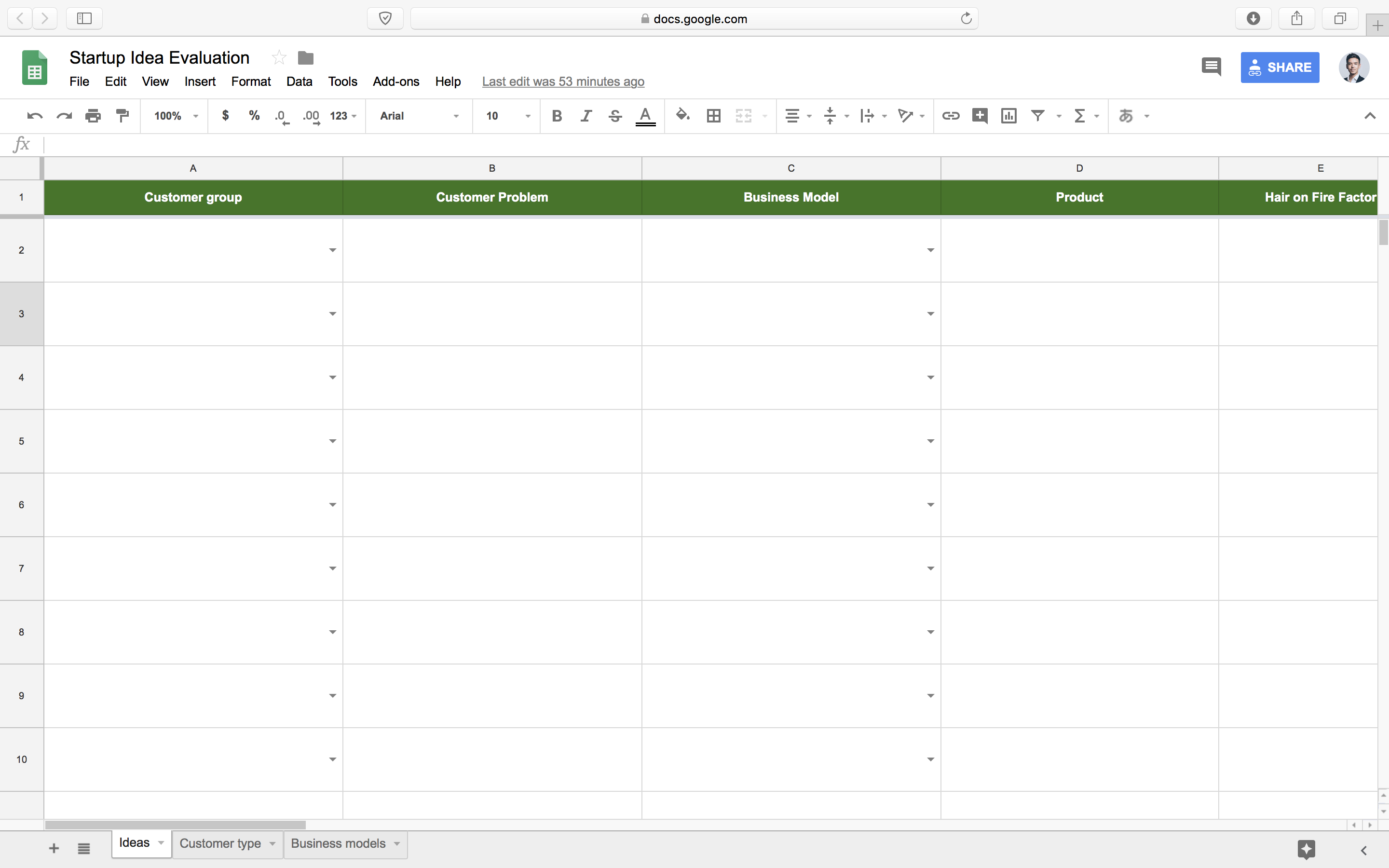12 Startups in 12 Months
Update 2020: If you're interested in what happened and why this 12 startup journey stops at number 7… see this post about Bannerbear
The ability to launch products is a muscle that you need to exercise.
Developing a hypothesis of where value can be created, building an MVP, getting it to market without getting distracted by shiny new things, and ultimately validating or invalidating the initial hypothesis - this process is like a sport for entrepreneurs. And you only get better at this sport through practice.
5 years ago I went on a journey doing just that. I launched a SaaS startup while traveling, it became successful enough to sustain my lifestyle while I lived on the beach, and I learned from various people that I was a "digital nomad".
It was a relatively new term back then.

I'm no stranger to coding on the road - follow my instagram and scroll back 5 years for the whole story!
Things are very different now.
Today, years since my last product launch and having given the last 2.5 years of my career to the corporate world, I am embarrassed to say my product shipping muscle has atrophied. So I'm spending the next year exercising that muscle back, by building and shipping a new product every month for a year.
12 startups in 12 months.
This concept is not new. Well-known digital nomad Pieter Levels was the first to attempt this challenge back in 2014. One or two others have also attempted it.
Why do this?
Here's 5 reasons I think the 12 startups challenge is a brilliant idea.
1. You're forced to ship
Getting something over the line, launched publicly into customers hands is much harder than it sounds.
I'm guilty of building many, many things to the 50%-60% complete mark and then stopping.
Entrepreneurs who have launched something will know how that final 10% of effort seems to take as long as the previous 90%. I'm guilty of building many, many things to the 50%-60% complete mark and then stopping. This is a tremendous waste of effort. Shipping a full product, rain or shine, by the end of every month is an incredibly good habit to form.
2. You increase the probability of success
The notion of an entrepreneur having a "eureka" moment and launching a brilliant product on their first try is a fairytale. You're human. Some of your ideas are going to suck. Some are going to be OK. Some are going to be worth paying for. And some are going to be worth paying for at a commercial scale.
The 12 startups challenge lets you iterate through the value chain in one market, or experiment with different markets.
It's very difficult to simply jump to "worth paying for at commercial scale". Normally, you will need to iterate and learn from your customers. The 12 startups challenge lets you iterate through the value chain in one market, or experiment with different markets. Either approach gets you closer to success by the end of 12 months in a more predictable way than just sticking with one idea.
3. You give your products time to breathe
Your products need time to find their market. You need time to experiment with different acquisition channels and gather feedback to iterate on. By the time you're working on your 5th startup, the 1st one may be gaining traction or you may have collected sufficient feedback from customers to evolve and improve it.
4. You can afford to take risks
It's just one month of commitment per product. So why not launch one or two of your crazier ideas? You can and should balance some passion projects with more commercial ventures. You never know, one of those crazy ideas might morph into something quite promising by the end of your 12 month challenge.
5. It sounds freaking fun!
Spending a year of experimenting, building, shipping and learning from customers or users sounds like a year well spent. It's like an anti-MBA.
Maybe you're like me and you enjoy building things. It's the same reason I love cooking - learning new techniques, creating a finished product and seeing what the response is. Spending a year of experimenting, building, shipping and learning from customers or users sounds like a year well spent. It's like an anti-MBA where instead of sitting in a classroom learning theory, you get out of the building, ship in rapid succession and learn lessons directly.
So what's next?
Over the last month I have been taking time to ideate and build a backlog of high level ideas. This will be the mixed bag of product ideas that I'll pick from to launch each month.

My startup idea evaluation sheet
I created the above google doc to help me evaluate ideas. You can copy the sheet for your own use. My approach to idea generation is as follows:
Fill the Customer types sheet with groups of customers you're familiar with in terms of their goals and problems. This might be customer groups that are part of your social network or groups you've worked with in the past.
Fill the Business models sheet with models you know well, for example SaaS, ecommerce.
Then fill the Ideas sheet from left to right. Starting by selecting a target customer, then define a problem you can solve, choose the business model and finally think of a product idea to address the customer problem.
Evaluation is where things get a bit subjective, but my approach is in the sheet. I rank the idea from 1 (weak) to 3 (strong) across the following attributes:
- Hair on Fire, is this a nice-to-have or a must-have?
- Access to Market, do I have easy access to potential customers?
- Day 1 Revenue, does this have the potential to make money from day 1 or does commercialization require further thought?
- Revenue Scalability, does this target market have scale?
- Defensibility, how hard would it be for someone to create a copycat?
- Lack of Competitors, is this blue ocean or red ocean space?
- Personal Passion, is this aligned with my interests?
- Unfair Advantage, do I have some special skill set that makes me the perfect person to launch this?
- IP Creation, will I be creating something of technical value that could be re-used elsewhere?
- Acquisition Potential, is this idea in a space where there is acquisition activity?
The point of the sheet is to evaluate across different attributes to try to quantify the rather subjective question of "is this a good idea?".
Each idea then gets a final score. I'm going to work on the ideas that come out with the best scores. It's not super scientific but it gives some direction at least.
Of course, not all of these criteria will be important to you. You can develop criteria that make more sense for your needs. The point of the sheet is to evaluate across different attributes to try to quantify the rather subjective question of "is this a good idea?".
So now that I've announced my undertaking this challenge, it's time to get back to work. First one launches at the end of this month and I'll maintain the list here. Follow me on twitter for more updates!
List updated September 30th 2018
Product 1 - Zipsell
Started: 1st September 2018
Launched: 29th September 2018
A free, open source platform for selling digital downloads.
Read more on this launch post.
Product 2 - Promomatic
Started: 1st October 2018
Launched: 31st October 2018
Easily create beautiful app store assets.
Read more on this launch post.
Product 3 - Montage
Started: 1st November 2018
Launched: 30th November 2018
Design apps with pre-built components.
Read more on this launch post.
Product 4 - Tech Jobs Asia
Started: 1st December 2018
Launched: 28th December 2018
A job board of Asia's best tech jobs.
Read more on this launch post.
Product 5 - Hyperjump
Started: 1st January 2019
Launched: 30th January 2019
SaaS for financial institutions.
Read more on this launch post
Product 6 - Tropic
Started: 1st February 2019
Launched: 28th February 2019
Overview of your remote team timezones.
Read more on this launch post
Product 7 - Talkshow
Started: 1st March 2019
Launched: 3rd April 2019
Video discussion board for remote teams.
Read more on this launch post
Update 2020: If you're interested in what happened and why this 12 startup journey stops at number 7… see this post about Bannerbear
I don't update this personal blog very often these days, I'm busy working on my business Bannerbear 🐻